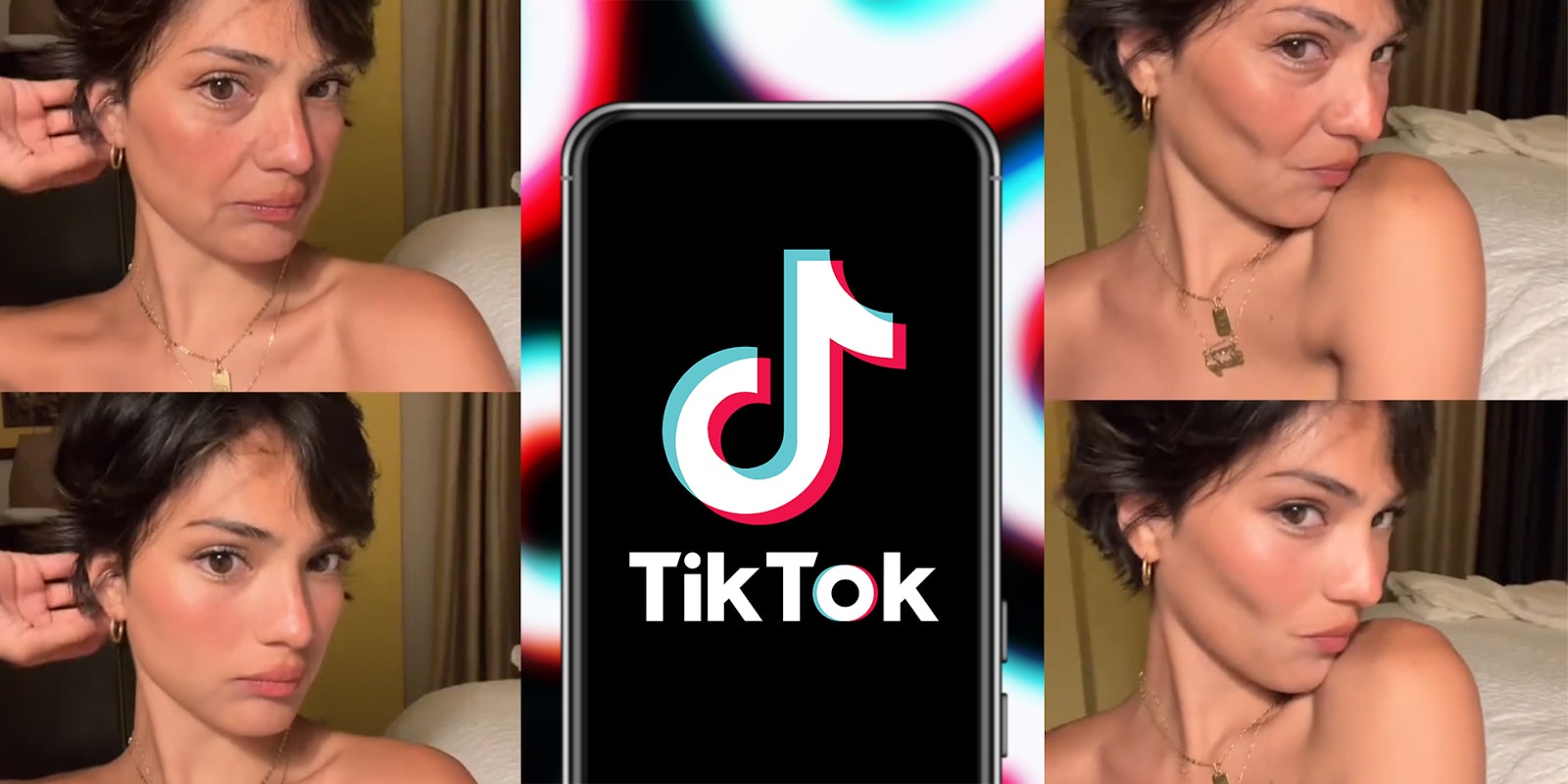Problematic on TikTok is a weekly column that unpacks the troubling trends that are emerging on the popular platform and runs on Tuesdays in the Daily Dot’s web_crawlr newsletter. If you want to get this column a day before we publish it, subscribe to web_crawlr, where you’ll get the daily scoop of internet culture delivered straight to your inbox.
Analysis
From SkinTok’s run downs of anti-aging skincare routines to slideshows of how celebrities have aged throughout their lives, TikTok has always been obsessed with aging. But in the last few months, our collective obsession—which is not only present on TikTok but also societal—has been taken to new heights with aging filters.
The first one hit in April of this year: TikTokers used a CapCut template to show how they might look when they are older via FaceApp. And this month, a TikTok filter called “aged” began allowing users to see how they’ll look in twenty or thirty years directly in the TikTok app. So far, the “aged” filter has been used in over 16 million videos.
The ways in which “aged” is used in videos vary. Some users put the filter on their faces and joke about how they’ll act when they’re older. Others appreciate seeing their aged faces, saying they look just like their late grandparents.
But mostly, people use the filter to show how horrified they are by their aged faces. One TikToker said her aged face looks like she would “sh!t [herself] at Bingo” in a nursing home, another said he tried “every possible lighting option thinking the filter made a mistake.”
The hullabaloo also intensified after dermatologists made videos about how accurate and “realistic” the filter is—which resulted in TikTokers talking about how they’ve stepped up their skincare routines so they don’t end up looking like the aged filter.
Why it matters
What is (obviously) behind the disdain TikTokers have for their (conjectured) aged faces is a fear of aging, which is also a fear of the passage of time and no longer having the social currency that being young affords. Some TikTokers identified this collective fear as internalized misogyny.
“The hardest part of unpacking your internalized misogyny is seeing so many women still holding onto theirs. It’s frustrating to see women hating on their aged face,” one TikToker said about the reactions to the filter. “But I can’t blame them for feeling fear and disgust when it’s the only way we’re allowed to feel about it.”
She’s right. Our negative reactions to how we might look when we’re older are learned. And that inherited ageism powers the booming anti-aging industry, in the same way that fatphobia powers the economy of diet culture.
And I’m not above it: I use retinol religiously and I didn’t love the way my face looked with the aged filter. But publicizing our disgust over aging teaches others to feel the same.
And I’d hate to be in my seventies, scrolling through TikTok, seeing people reacting in hatred about a face that looks like mine.


